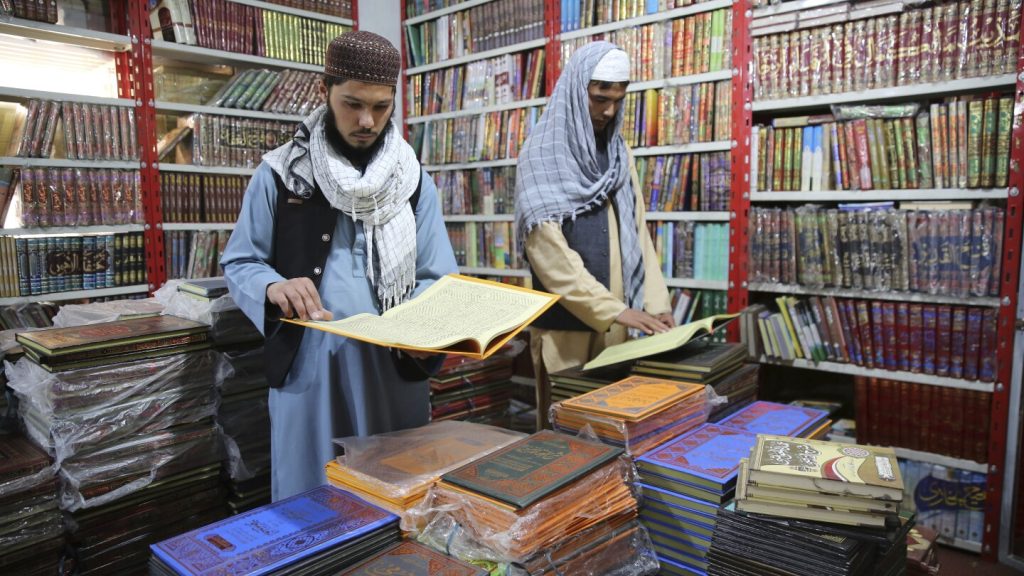Despite the economic woes and humanitarian crisis in Afghanistan, some businesses are thriving under Taliban rule. Yunis Safi, a businessman in Kabul, runs a phone shop in a posh neighborhood, selling the latest iPhone models for $1,400. Even with more than half of the population relying on humanitarian aid to survive, there are still customers willing to spend on luxury items like smartphones. The Taliban, now invested in 4G mobile networks, have seen an increase in the number of active SIM cards and phone imports, indicating a growing demand for mobile devices in the country.
Remittances from the Afghan diaspora are a vital source of income for many families, with money exchangers in Kabul’s Shahzada Market estimating that $10 million changes hands daily. The collapse of the banking sector has made money transfers through informal channels like these even more crucial. Abdul Rahman Zirak, a senior official at the market, notes that the lack of international banking options has led to an increase in business for money exchangers. With sanctions in place and assets frozen, it seems likely that these informal channels will continue to be essential for years to come.
Despite the challenges of running a business in Afghanistan, some entrepreneurs see opportunities for growth. Irfanullah Arif, who runs a bookstore specializing in Islamic texts, has found a niche market among teachers and students at madrassas. The Taliban’s push for religious education and the recruitment of more madrassa teachers have boosted demand for Islamic literature. However, the increase in taxes under Taliban rule has also impacted Arif’s business, making books more expensive for customers. While the growth of madrassas has benefited his trade, the higher taxes present a challenge for business owners.
The situation in Afghanistan remains complex, with businesses adapting to the changing political and economic landscape. While some sectors are thriving under Taliban rule, others face challenges due to increased taxes and limited opportunities for women in the workforce. Yunis Safi’s phone shop caters to a diverse customer base, from those seeking the latest iPhone models to those looking for more affordable handsets. The growth of the telecom sector and the increase in phone imports indicate a growing demand for mobile devices in Afghanistan.
The resilience of Afghan businesses in the face of economic hardships, political instability, and international sanctions is evident in the stories of entrepreneurs like Yunis Safi and Irfanullah Arif. Despite the difficulties of doing business in Afghanistan, these individuals have found ways to adapt and thrive under Taliban rule. The reliance on remittances from the diaspora and the growing demand for mobile devices and Islamic literature illustrate the diverse market opportunities that exist in the country. As Afghanistan continues to navigate its new reality, businesses will continue to play a crucial role in driving economic growth and stability in the region.


